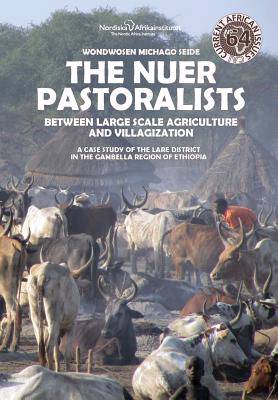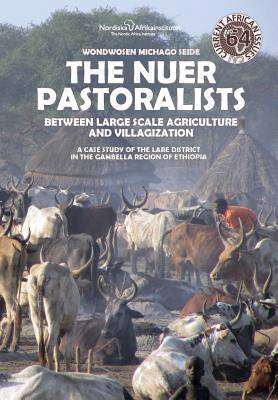
- Retrait gratuit dans votre magasin Club
- 7.000.000 titres dans notre catalogue
- Payer en toute sécurité
- Toujours un magasin près de chez vous
- Retrait gratuit dans votre magasin Club
- 7.000.0000 titres dans notre catalogue
- Payer en toute sécurité
- Toujours un magasin près de chez vous
The Nuer Pastoralists - Between Large Scale Agriculture and Villagization
A case study of the Lare District in the Gambella Region of Ethiopia
Wondwosen Michago SeideDescription
Ethiopia has shown encouraging economic development in the past years. The swirls of economic bubbles are impacting the different regions of the country. At the moment, there are several national and regional development projects being implemented in the Gambella Region in Western Ethiopia. However, being part of the development scheme of the federal state does not necessarily guarantee that this peripheral region will be integrated and brought closer to the political, cultural and economic core.
This report is an attempt to contribute to this debate by focusing on two major themes: large-scale agriculture and the villagization programmes. It examines the dynamics of Gambella's political economy and the process of incorporating the region - and the Nuer transhumant communities in particular - into the national economy. Specifically, it explores how processes of commercial farming investments and the villagization programme impact Nuer pastoralists. A policy recommendation to be concluded from this research is to acknowledge the nexus between two pastoral development approaches - pastoral area development vs. pastoralism development - so as to make them run in tandem without one excluding the other. By recognising them as mutually reinforcing, pastoralism could be promoted while resources are developed.
Wondwosen Michago Seide is a PhD student at the Department of Political Science at Lund University in Sweden. He was a guest researcher at the Nordic Africa Institute in 2015, and a Louwes Water Scholar at Oxford University where he got his MSc in Water Science, Policy and Management. Over the past ten years, he has worked as a researcher and consultant in the areas of water, development and environment for various organisations, regionally and internationally. He has produced different publications on hydropolitics, land management and environmental governance issues.
Spécifications
Parties prenantes
- Auteur(s) :
- Editeur:
Contenu
- Nombre de pages :
- 60
- Langue:
- Anglais
- Collection :
- Tome:
- n° 64
Caractéristiques
- EAN:
- 9789171067920
- Date de parution :
- 26-09-17
- Format:
- Livre broché
- Format numérique:
- Trade paperback (VS)
- Dimensions :
- 170 mm x 244 mm
- Poids :
- 149 g







